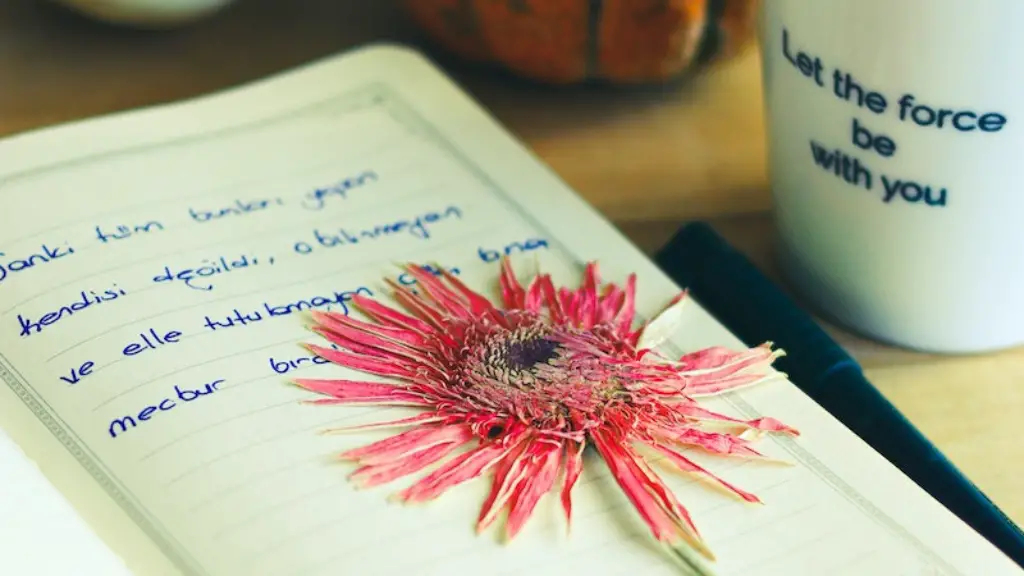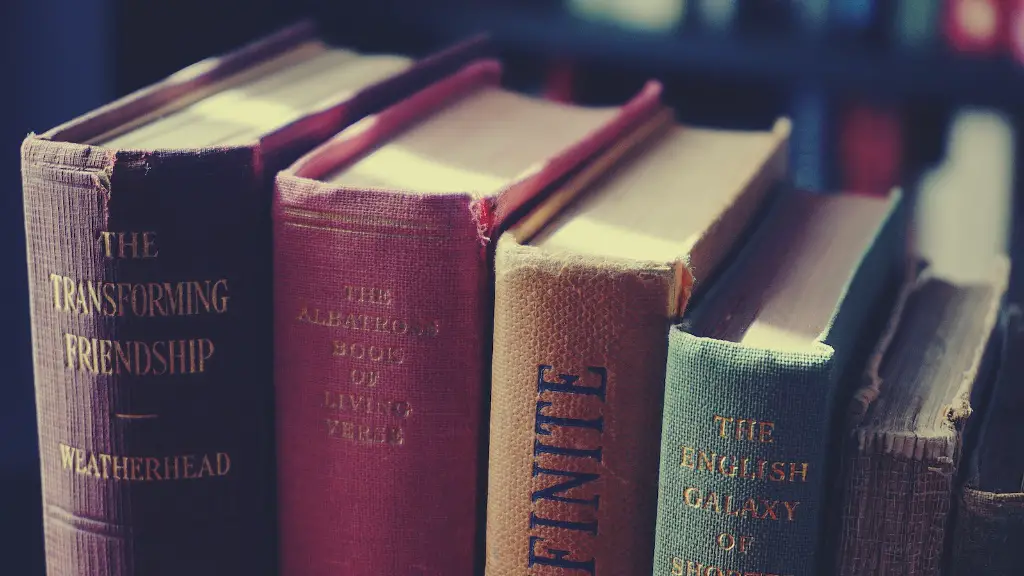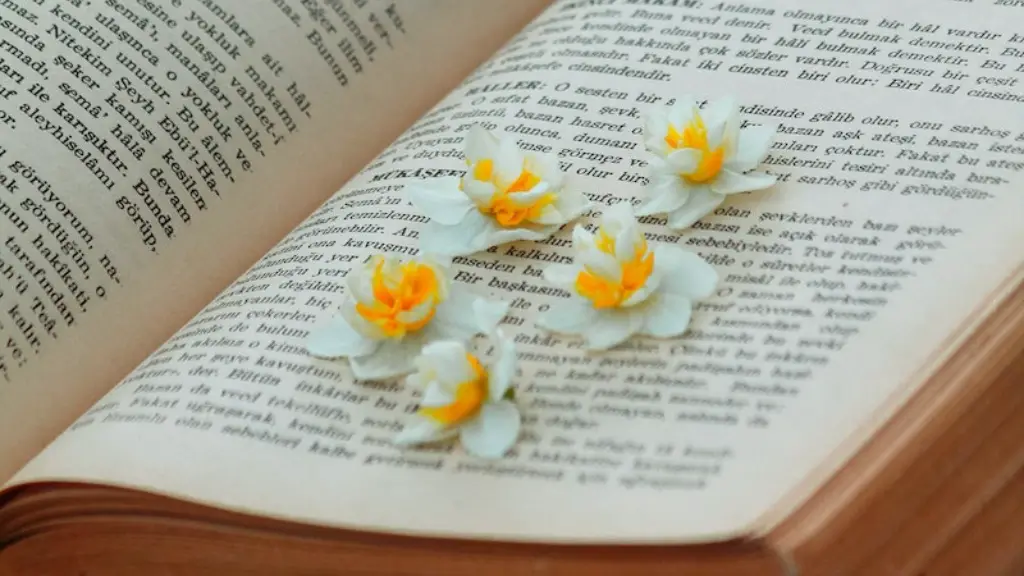What is Poetry
Poetry is a form of art which makes use of language to evoke emotions and express thoughts. Originating from ancient cultures, it has evolved through the ages, adapting to changes in its environment and developing new forms from old. While its roots may be hundreds of years old, poetry has been able to remain relevant in modern times due to its adaptability and ability to capture human emotion.
Evolution of Poetry
The origin of poetry dates back to prehistoric times, when hunters and gatherers chanted and sang to help pass the time and express their emotions. As civilizations developed, so too did the art of poetry, taking many forms, such as epic tales and lyrical verses. Much of the earliest poetry, such as that contained in the Epic of Gilgamesh and the anecdotes in Homer’s Odyssey, were stories of gods, heroes, and mythic creatures.
As poetry developed, it moved away from tales of the supernatural and focused more on human relationships and emotions. Common forms included elegies, odes, and love songs, which are still popular today. During the Renaissance, music was added to the mix, creating a more compelling way for poets to express their feelings.
Impact of Poetry in Early Times
In early times, poetry was used to tell stories, communicate morality, and pass on cultural knowledge. The poems of Homer, for example, were read aloud in the courts of Ancient Greece to teach young children about virtues like loyalty and courage. Poetry also served as a communication tool for laborers and other oppressed classes, who could not read or write but could connect with poetry on a deep, personal level.
In modern times, poetry continues to be an effective way of expressing emotion and conveying moral values. It has been used in education to encourage critical thinking, and has been studied by researchers to explore how the use of poetic language can influence the way people perceive and interact with the world.
Impact of Poetry Today
Today, poetry is more popular than ever and is used in numerous ways. People often write poems as a form of self-expression or as an outlet for their feelings. Poems can also be used to commemorate important events and honor loved ones who are no longer present. In some cases, poems can even be used to promote social change, as seen in the works of Dr. Martin Luther King Jr. and other civil rights activists.
Poetry has also been embraced by popular culture, with rap and spoken word formats becoming increasingly popular. These genres give people of all backgrounds the chance to express their thoughts and feelings, often in an impactful and creative way.
Benefits of Reading Poetry
Reading poetry has many benefits, both for individuals and society as a whole. It can help people to better understand and express their emotions, and can even offer insights into other cultures and perspectives. It also encourages the development of critical thinking skills, as readers must analyze the language and structure of poems to understand their meaning.
Some research has also suggested that reading poetry can reduce stress and even improve physical health. Poems are often used in therapy to help people cope with difficult emotions, and can even be used to address mental health issues such as depression and anxiety. Reading poetry can also help bring people together and foster mutual understanding.
Responses to Poetry
The way in which people respond to poetry can vary greatly, as individuals may interpret it differently. Some people may be drawn to the beauty of the language and its rhythm, while others may be moved by the depths of emotion conveyed in the lines. Poetry can also be enjoyed for its intellectual stimulation, with readers actively engaging with the words and pondering their complexity.
No matter the response to poetry, it can be a powerful way to open the mind and experience life in a new light. For many, poetry is a source of inspiration and a reminder that it is possible to connect deeply with the world despite its challenges.
Importance of Poetry
Poetry can be a source of comfort, providing solace during challenging times. It also has the power to create change and spark conversations. Poetry can also be used to explore various topics and perspectives, as readers can immerse themselves in the language and contemplate the meaning of the words.
Finally, poetry is an engaging educational tool for children, as it exposes them to different types of language and helps to develop their language and literacy skills.
Forms of Poetry
The most common forms of poetry are free verse, sonnet, and haiku. Free verse is a type of poetry that does not adhere to strict rules—it emphasizes the playfulness of language and captures emotion through sounds and images. Sonnets are a type of lyrical poem that has fourteen lines and follows a specific rhyme and meter pattern. Haikus are short poems that focus on nature and evoke emotion through their simplicity.
Though these are the most popular forms, there are countless variations of poetry, including ballads, elegy, ode, limericks, and more. This variety allows readers to explore different types of language and discover what speaks to them.
Objective of Poetry
The primary objective of poetry is to communicate and connect with others on an emotional level. Poetry has the power to move us and make us feel something, which is ultimately why it continues to be relevant in today’s world. That sense of connection—though not always seen—is deep and powerful, and serves as the core of poetry.
It is also worth noting that poetry can become a tool for self-expression, helping people to find their own voices and explore their innermost thoughts. Similarly, poetry can be used as a form of therapy, providing comfort and emotional support.
Writing Possibilities of Poetry
Writing poetry can provide an excellent outlet for exploring emotions, as it allows creators to express themselves without having to worry about how their words will be perceived. Furthermore, it provides an enjoyable way to pass the time, allowing creators to delve into their imagination and tap into the power of language.
In terms of challenge, creating poetry can be quite difficult, as the writer must craft each line carefully and ensure that their words fit together in a poetic way. However, with practice, anyone can learn to express themselves through poetry, and improve their writing skills in the process.
Benefits of Writing Poetry
Beyond its potential therapeutic benefits, writing poetry can also be a cathartic experience, helping writers to cope with difficult emotions and provide a sense of resolution. It can also be empowering, as it allows writers to express themselves and tell their stories in a unique way.
On a more pragmatic level, writing poetry can help improve grammar and spelling skills, as well as writing fluency. It can also foster creativity, as the writer is constantly challenged to come up with new ideas and search for the right word. Finally, it is a great way to practice storytelling and develop a better understanding of language and its power.


